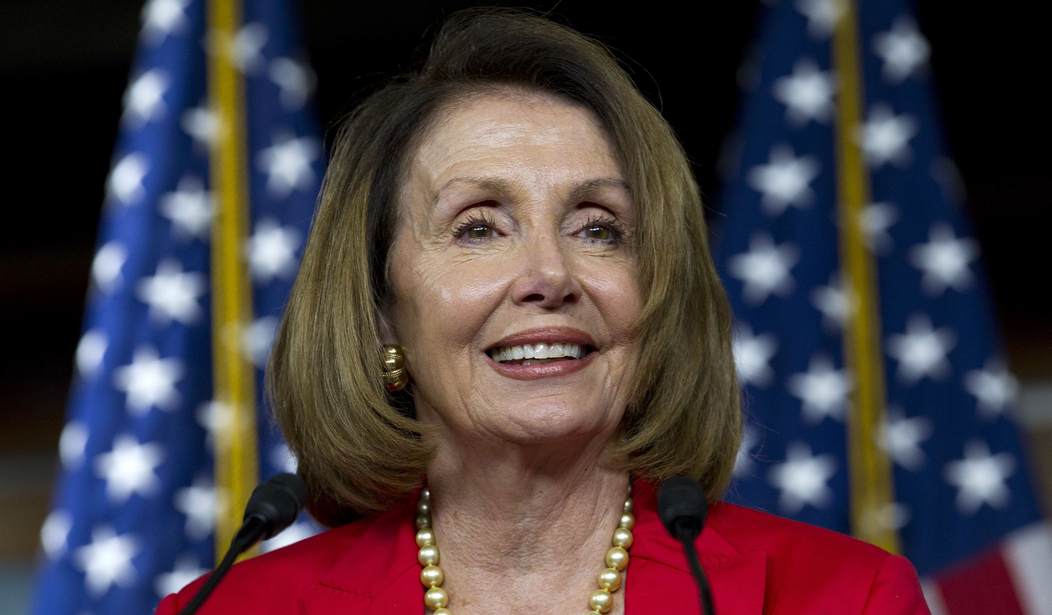Democrats are hoping the coming election will give them a majority in the House of Representatives. Republicans and much of our nation dread that prospect. My question is: What would a House majority mean for the Democrats? Let's look at it.
To control the House of Representatives, Democrats must win at least 218 seats, which many predict as being likely. To control the Senate, Democrats must win enough seats to get to 51, which many predict is unlikely. Let's say the Democrats do take the House. If they were to pass a measure that Republicans in both houses didn't like and President Donald Trump didn't like, either, he could use his veto pen. To override Trump's veto, Democrats would need to meet the U.S. Constitution's requirement that they muster a two-thirds vote in the House of Representatives (290 votes) and a two-thirds vote in the Senate (67 votes). Neither would be likely.
It's quite a challenge to override a presidential veto. President Franklin D. Roosevelt was the veto king, with 635 vetoes. Only nine of them were overridden. President Grover Cleveland vetoed 584 congressional measures and was overridden only seven times. If the House Democrats were to do all that they promise to do and if President Trump were to marshal the guts of Presidents Roosevelt and Cleveland -- both Democrats, I might add -- the next two years would be a sight to behold.
But wait! Democrats are pushing for the elimination of the Electoral College and having presidents chosen by majority rule. Might they call for the same for all political decisions? That way, it would require only a simple majority vote, rather than two-thirds, to override a presidential veto.
Recommended
The Founding Fathers had utter contempt for majority rule. They saw it as a form of tyranny. In addition to requiring a supermajority to override a presidential veto, our Constitution has other anti-majority provisions. Proposing an amendment to the Constitution requires a two-thirds vote in each house of Congress or two-thirds of state legislatures to vote for it. On top of that, it requires three-fourths of state legislatures for ratification of a constitutional amendment. Election of the president is done not by a majority popular vote, much to the disappointment of the left, but by the Electoral College.
Having two houses of Congress places another obstacle to majority rule. Fifty-one senators can block the wishes of 435 representatives and 49 senators. As mentioned earlier, our Constitution gives the president veto power to thwart the wishes of a majority in each house of Congress. It takes two-thirds in each house of Congress to override the president's veto.
The Founders recognized that we need government; however, they also recognized that the essence of government is force and that force is evil. To reduce the potential for evil, they thought government should be as small as possible. They intended for us to have a limited republican form of government wherein human rights precede government and there is rule of law. Ordinary citizens and government officials are accountable to the same laws. Government intervenes in civil society only to protect its citizens against force and fraud; it does not intervene in cases of peaceable, voluntary exchange. By contrast, in a democracy, the majority rules either directly or through its elected representatives. The law is whatever the government deems it to be. Rights may be granted or taken away.
For those Americans who see majority rule as sacrosanct, ask yourselves how many of your life choices you would like settled by majority rule. Would you want the kind of car you own to be decided through a democratic process? What about decisions as to where you live, what clothes you purchase, what food you eat, what entertainment you enjoy and what wines you drink? I'm sure that if anyone suggested that these decisions should be subject to a democratic process wherein majority rules, we would deem the person tyrannical.
James Madison wrote, "Democracies ... have ever been found incompatible with personal security or the rights of property; and have in general been as short in their lives as they have been violent in their deaths."

























Join the conversation as a VIP Member